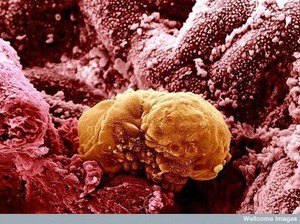On 16 January 2017, the European Society for Medical Oncology (ESMO) published a position paper on biosimilars saying that ‘biosimilars create opportunities for sustainable cancer care’ [1].
European oncologists back biosimilars with position paper
Biosimilars/General
|
Posted 20/01/2017
 0
Post your comment
0
Post your comment

The paper outlines the approval standards for biosimilars, how to safely introduce them into the clinic and the potential benefits for patients and healthcare systems. It covers aspects related to definition, forms of biosimilars, labelling, extrapolation, interchangeability, switching, automatic substitution, clinical standards on safety and efficacy, responsibilities among prescribers and pharmacists, potential impact on financial burden in health care and the current scenario and future prospects of biosimilars in Europe and the rest of the world.
The authors make it clear that ‘as biosimilars are not identical copies but the best possible version of their reference products, their labelling is of crucial importance due to the fact that it provides both the physician and the patient with the necessary information about the product and its effects’.
Regarding extrapolation of indications the authors believe that ‘extrapolation to all clinical indications may be acceptable in the EU, and globally, if there are enough relevant data related to the safety and efficacy of the biosimilar, any differences in the data are appropriately justified’.
Interchangeability and switching, according to the paper, should only be permitted if: (1) the physician is well-informed about the products; (2) the patient is fully briefed by the physician; and (3) a nurse is closely monitoring the changes and tracking any adverse events.
Finally, the authors state that ‘optimal safety and efficacy is, critically, the shared responsibility of both the manufacturers and the regulatory bodies’. Adding that ‘the manufacturing of biosimilars must also adhere to the stringent regulations and guidelines stipulated by the WHO [World Health Organization], EMA [European Medicines Agency] and FDA [US Food and Drug Administration]’.
The first biosimilar cancer drugs are expected to reach the market in Europe during 2017. Amgen and partner Allergan submitted their application for approval of their biosimilar version of Roche’s blockbuster cancer treatment Avastin (bevacizumab) to the European Medicines Agency (EMA) in December 2016 [2].
Related article
ABPI issues updated position paper on biosimilars
References
1. Tabernero J, Vyas M, Giuliani R, et al. Biosimilars: a position paper of the European Society for Medical Oncology, with particular reference to oncology prescribers. ESMO Open. doi:10.1136/esmoopen-2016-000142. Published 16 January 2017.
2. GaBI Online - Generics and Biosimilars Initiative. Bevacizumab biosimilar application submitted to EMA [www.gabionline.net]. Mol, Belgium: Pro Pharma Communications International; [cited 2017 Jan 20]. Available from: www.gabionline.net/Biosimilars/News/Bevacizumab-biosimilar-application-submitted-to-EMA
Permission granted to reproduce for personal and non-commercial use only. All other reproduction, copy or reprinting of all or part of any ‘Content’ found on this website is strictly prohibited without the prior consent of the publisher. Contact the publisher to obtain permission before redistributing.
Copyright – Unless otherwise stated all contents of this website are © 2017 Pro Pharma Communications International. All Rights Reserved.
Source: ESMO
Research
Reaching ESG goals in pharmaceutical development
What is the future for the US biosimilar interchangeability designation
News
FDA approves Poherdy (first interchangeable pertuzumab) and Armlupeg (pegfilgrastim) biosimilars
EMA recommends approval for insulin glargine biosimilar Ondibta and denosumab biosimilar Osqay
Most viewed articles
The best selling biotechnology drugs of 2008: the next biosimilars targets
Global biosimilars guideline development – EGA’s perspective
Related content
Samsung Bioepis wins Pyzchiva case; Regeneron patent rulings threaten foreign biosimilars
Chinese biosimilars go global: growth, partnerships, and challenges
Stelara biosimilars enter US market with 85% discount in 2025
IFPMA publishes position on pharmacy-mediated substitution for biosimilars
Samsung Bioepis wins Pyzchiva case; Regeneron patent rulings threaten foreign biosimilars

Biosimilars/General Posted 30/07/2025
Chinese biosimilars go global: growth, partnerships, and challenges

Biosimilars/General Posted 30/04/2025
IFPMA publishes position on pharmacy-mediated substitution for biosimilars

Biosimilars/General Posted 21/03/2025
The best selling biotechnology drugs of 2008: the next biosimilars targets







Post your comment